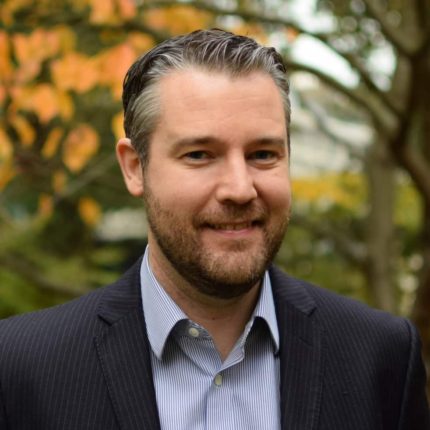The challenges for higher education and research institutions – both in the UK and in many countries across the world – are acute and immediate.
A combination of funding pressures, changing student demands, the rapid development of AI, international conflict and restrictive visa regimes are necessitating significant change and transformation.
These tough challenges require all those working in higher education to think differently about how we lead, teach, support students and operate. Yet within these challenges lie opportunities for innovation and positive change.
I am three months into the role as chief executive of Advance HE. My recent conversations with many of our members have reinforced the need for us to focus on how we can enhance our support for transformation and change.
Time for a change
I believe that to be successful, higher education institutions need good leadership; effective governance; they should promote excellence in teaching and learning; and embed equality, promote diversity and inclusion. These are the four key pillars of Advance HE’s work and will continue to be so. However, we cannot stand still. Supporting higher education institutions in this difficult and changing context means that Advance HE needs to change and modernise. Our portfolio, programmes and products need regular review, refreshing and revamping, to remain relevant, to be high value and high impact.
There has been excellent work led by Universities UK’s transformation and efficiency taskforce, which set out a number of recommendations and challenges for the sector. Advance HE can play an important role in supporting transformation and change both at a sector level and an institutional level. In the context of financial pressures, changing student needs, international uncertainty and digital developments – we need to be an enhancement agency – a trusted partner for higher education and research institutions.
Supporting enhancement, change and transformation will now be at the heart of what Advance HE does – embedded across our member benefits, our programmes and our consultancy. To help institutions through these challenging times we will apply our expertise, experience and resources to best support enhancement and service improvement, where it is needed.
Collaborating with partner organisations that are supporting transformation and change will be central to our approach. Blending our expertise in leadership development, educational excellence, equality and inclusion, governance effectiveness with the experience of partners that have different but complementary skills and capabilities.
Overall, our focus is primarily on people. We can play a role to enhance capabilities at all levels to lead and manage transformation and change – academics, professionals services, governing bodies.
What we will do
There are three practical steps I am taking now to strengthen our support for transformation and change:
Firstly, we have made supporting transformation and change a core part of our membership offer. We are drawing on the areas where we have deep expertise – leadership development, educational excellence, governance effectiveness – to apply our expertise directly to the most pressing issues facing our members.
For example, the new Educational Excellence Change Academy, a structured virtual six-month programme designed to help higher education staff to lead systemic educational transformation. The programme provides practical support to redesign curriculum to align with workforce needs, reimagine pedagogy to be inclusive, digital, and engaging; and enhancing student support models to strengthen wellbeing and retention.
Additionally, we have launched the Merger Insights and Roadmap, a new resource for navigating institutional collaboration, partnerships and mergers. Drawing on recent case-studies from successful transformations, it considers early option-testing and due diligence through to culture integration and regulatory engagement.
Secondly, later this autumn I will announce a new strategic advisory group who will work with our in-house expert to further enhance our support for transformation and change. We will further evolve our membership offer; review our portfolio of products and services; lead new research to share insights; and bring knowledge and learning from other sectors that have delivered significant transformation. We will also recruit new associates with deep and relevant transformation experience to work with our in-house experts.
Thirdly, we will do more to realise the benefits of Advance HE being a global organisation with an international membership. Our 470 members are from 34 countries – with almost a third of our members outside the UK – in Australia, Ireland, in the Gulf, across Europe, in South-East Asia and beyond. The challenges facing higher education institutions in one part of the world are often mirrored in another. The solutions, approaches and innovations being developed in different contexts can offer fresh perspectives and practical ideas that translate across borders. We will do more to draw on the fact that we have a diverse, global membership to share insights, solutions, and good practice across our membership.
At a time of significant challenge for higher education and research, institutions are increasingly needing to deliver transformational change in the way they operate. Advance HE is committed to supporting people working in higher education to do this successfully.














You have a method for automatically calculating your financial forecasts, but your staff are no longer the people who worked up the method, its assumptions, and rules encoded as algorithms, so they can not perform ready reckoning using experience for checking if the numbers and results look right or adjust the method in real time and think through the likely consequences. Administrative complexity from the OfS makes it too difficult to add new calculations easily. We are talking about people and not stock control.